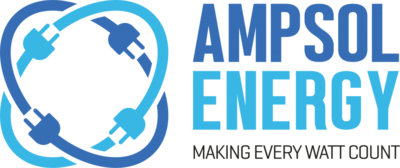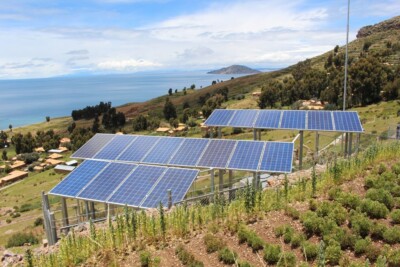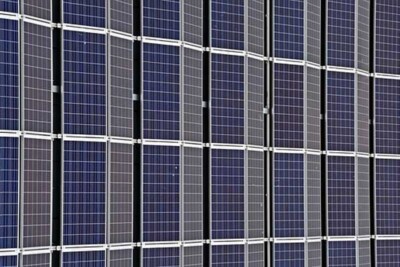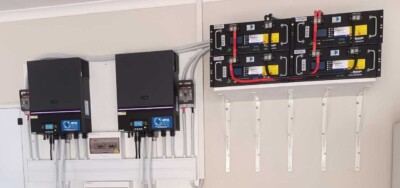The solar panel is obviously the heart and soul of every renewable power system.
They are graded in tiers, most reputable companies will only use tier 1 solar panels, so be sure to check that you are getting the very best.
All tier 1 panels have a performance warranty of 20 years and are also underwritten by Lloyd’s of London or a similar long-standing insurance company.
If the panel fails, they will carry the warranty, should the manufacturer no longer be in business, which is why financial institutions will only finance solar systems using tier 1 solar panels.
A typical tier 1 solar panel will have 72 modules, and the current standard is around 405watts.
Solar panels are measured in WP (watt-peak) so if you have 12 x 405-watt panels = 4.86 kWp (kilo-watt-peak) system.
This will produce 4860watts at any particular time under ideal conditions.
We normally work on about 5.5hrs average sunlight producing hours per day, so this system will have the capability of producing 26.73kW of power for that day.
Ideal conditions are around 15 to 25 degrees ambient temperature.
The common misconception is that they brighter and hotter it is, the more power the panels will produce.
Above 35 degrees, the efficiency actually decreases, and the hotter it gets, the more efficiency is lost.
There are two main types of solar panels, monocrystalline and polycrystalline.
Monocrystalline panels are made out of a single wafer per module and perform better in colder climates, so are typically used in the northern hemisphere, they are also slightly more expensive.
That is the reason we use mostly polycrystalline panels in South Africa, they just handle our conditions of higher heat better.
Polycrystalline panels have always been perceived to be inferior, due to the fact that they are made from the off-cuts of mono panels, but have proved over and over to be better for our conditions here in South Africa.
The only occasion we do use them, is if an estate or the customer wants an all-black solar panel for aesthetic reasons.
Please feel free to contact me should you need any further information regarding solar panels.
(Copyright) John Airth (2020)



